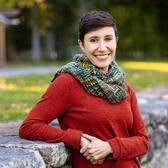Jewish Women Politicians: Progressively Passionate?
Self-confident. Loud. Hard-working. Feisty. These are the words that come to mind when describing Jewish women. So perhaps it’s no wonder that we’ve taken great strides in shaping and transforming politics. In the 1920s, Rose Schneiderman was a key organizer for the National American Women Suffrage Association. And in 1976, Bella Abzug became the first woman elected to the U.S. Congress on an explicitly feminist platform, a demonstration of her unshakable convictions as an anti-war activist and as a fighter for social and economic justice for all Americans.
Jewish women politicians have often sought inspiration from their heritage. In 1985, when Madeleine Kunin, a Jewish immigrant from Switzerland, took the oath of office as the first female governor of Vermont she rested her left hand on a stack of old prayer books that had belonged to her mother, grandparents, and great grandfather. It was a physical expression of the weight of Jewish history and a way for Kunin to quietly but publicly honor past generations of Jewish men and women who might have had opportunities for political leadership had those doors been open to them. Later in her career, when Kunin served as the U.S. Ambassador to Switzerland (1996-99), she facilitated the return of Swiss bank account funds to Holocaust survivors.
Since the time of Abzug and Kunin, the political climate has changed. And so I’m left wondering: would the passionate politics and strong-willed charisma of Bella Abzug help elect a Jewish woman -- or any woman -- today? Will Jewish politicians of the 21st century rest their hands on Hebrew prayer books as they’re sworn in to office? Maybe not.
At a time when political candidates are under inescapable scrutiny for just about everything, today’s Jewish women politicians might need to curb their charisma and be a bit more mindful of the dangers of identity-politics than their predecessors. If women are perceived as “too strong” or too forthright in their self-expression, they might be considered “unfeminine” and/or “threatening.” If they aren’t strong enough, they’re often thought to be unfit for politics. It’s a difficult balance to achieve... and unfortunately, it’s often a no-win situation.
And yet, there is still much to acknowledge. In 1992, Dianne Feinstein (D) and Barbara Boxer (D) were both simultaneously elected as senators of California and continue to hold office. Quite remarkable to have two Jewish woman senators representing the same state at the same time! And despite changes in the tone and tenor of U.S. politics in 2006, many of today’s Jewish women politicians including Jan Schakowsky (D-IL), Shelley Berkley (D-NV), Jane Harman (D-CA), and Nita M. Lowey (D-NY) do maintain a public Jewish identity and a commitment to Jewish issues. Six months ago, Congresswoman Debbie Wasserman-Schultz (D-FL) proposed and championed resolutions through the House and the Senate that led to the official designation of the month of May as “Jewish American Heritage Month” joining “Black History Month” in February and “Hispanic Heritage Month” in October. For Wasserman-Schultz, honoring the American Jewish experience is clearly part of her public political identity.
What aspects of your Jewishness make you political? Which aspects of your politics reflect your Jewishness? How might it be easier or more challenging to be a Jewish woman politician in the 21st century?
You can learn more about the key roles Jewish women have had in U.S. politics by checking out JWA’s Jewish Women In Politics online exhibit.







I was delighted to see your timely and thoughtful entry, especially relevant in this campaign season as we consider what matters in choosing our local, state, and national representatives.
First, Jewish women candidates: having worked with Ellen Simon's campaign and being a CD1 voter, I have been surprised by how little religion (explicitly) has come up during the campaign. Simon and the incumbent Renzi are nearly opposite on most issues and personal characteristics. Where religious community does come up is in Simon's assertion of her personal history. Simon is the daughter of Holocaust survivors and speaks eloquently about reclaiming the America that her parents embraced. This appeal is salient, though out in Arizona seems to strike the nerve of liberty and pride rather than curiosity or sympathy concerning her family history. The conversation about Jewish women candidates also begs the question brought up in relation to the Torah as Parenting Guide: is there something currently appealing or hip about Jewish culture that would attract voters? Here, in CD1, this point has been moot. Simon, clearly a strong and eloquent woman who will (hopefully) make a better congresswoman than she does candidate, is much more in the vein of wealthy-lawyer-from-Cleveland-who-moved-to-Sedona-following-an- early-retirement. What seems to appeal here is the strength and independence Simon assert, this certainly derives in large part from her family history. These traits are attractive to Arizona voters because of they appeal to a "rugged individualism" and openness in politics that, according to the NYTimes and to policy-making procedures, seems to characterize the west. In CD1, with our Jewish woman candidate, what matters is the convergence of her personal fortitude and a cultural and political openness. As a side note, Simon's company on the democratic slate includes a sheep-hearder, several other female attorneys, a public school teacher, and several Latinos, and one Indian-American woman.
Your question about the relationship between our Jewish faith and politics is also particularly interesting right now and one that I've been thinking about a great deal lately, but it's election day, so more later!